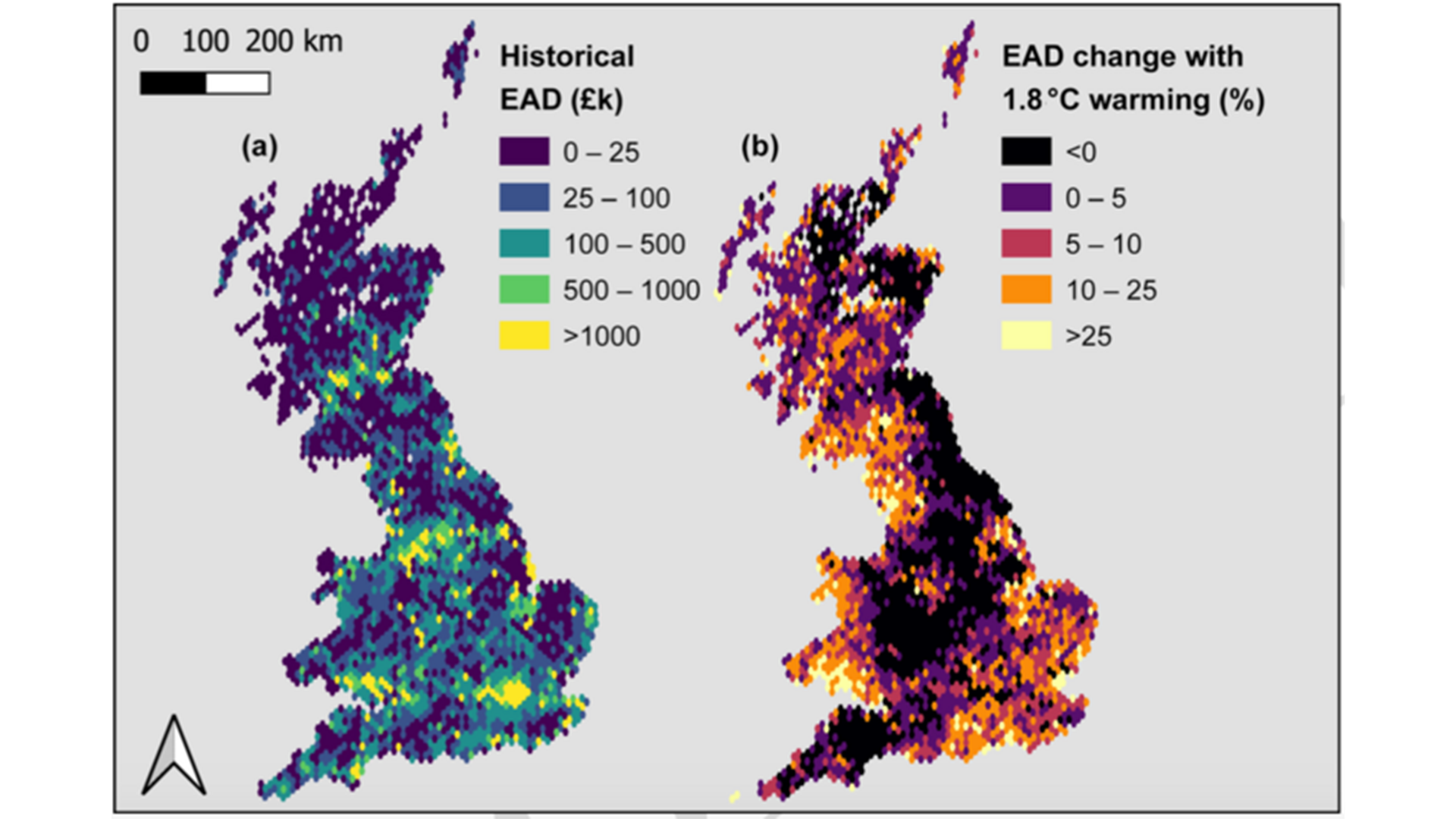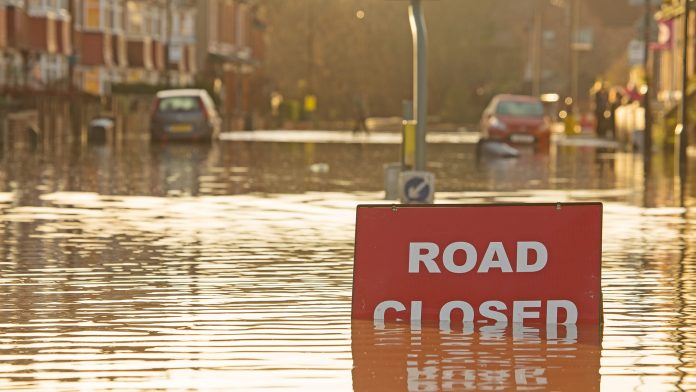Research from the University of Bristol and Fathom suggests that damage caused by UK flooding could increase by more than 20% over the next century if global emissions targets are not met.
The research team has innovated a cutting-edge dataset that employs the latest Met Office climate projections – which factor in the impacts of climate change – to determine potential annual damage caused by future UK flooding.
The results reinforce how critical it is for countries to follow through with the ambitious pledges they made at COP26, as the devastating effects forecasted in the UK study could be experienced globally if effective climate action is not taken immediately.
Paul Bates, Professor of Hydrology and Chairman of Fathom, commented: “For the first time, this flood model gives us a more accurate and detailed picture of the impact of climate change on the risk of flooding in the future across the UK.
“The results are a timely warning to the country’s political leaders and business sector that global commitments to reduce carbon emissions significantly must be taken very seriously, and ultimately take effect, in order to mitigate increased losses due to flooding.”
Forecasting future damage from UK flooding
Previous investigations have demonstrated that historical UK economic losses due to flooding were three times less than the government’s estimates. However, this is the first time that a computer model has replicated and corroborated the observed losses.
The groundbreaking flood model works by calculating historical flood risk based on actual river flow, rainfall, and tide-surge observations and amalgamating them with climate model projections. These estimates correspond well with flood loss data from the Association of British Insurers.
The results illuminated that if the UK and other nations fulfil their COP26 and net zero commitments, the annual increase in national direct flood losses – defined as physical damage to property and businesses – can be kept 5% above recent historical levels.
However, if these climate targets are not achieved, the annual cost of UK flooding could grow by 12-23% over the next century.
Which UK areas will be impacted the most?
Even under the best-case scenario, in which global warming is limited to a rise of 1.8°C, some areas of the UK will still experience a significant flood risk increase.
South East England, South Wales, North West England, and Central Scotland are at the highest risk of flooding in the UK, with densely populated cities such as London, Manchester, Cardiff, Glasgow, and Edinburgh potentially suffering more than a 25% increase in damages.
Professor Bates explained: “Although the most optimistic climate scenarios see only modest increases in flood losses at a national level, these new data demonstrate how this conceals dramatic variations across the country, with some places seeing large changes and others very little.
“This is a result of changing patterns of future rainfall, river flow, and sea level rise, and this leads to the regional differences we predict.
“We found that flooding increases most in places where risk is already high now, so the best thing we can do to prepare for the impact of climate change is to strengthen flood management in currently at-risk areas, and this will bring immediate economic and social benefits as well.”

In contrast, the flood model suggests that flood damage in North-East and Central England and Eastern and Northern Scotland will not vary much from the present day.
The team aims to recreate their model for other countries worldwide to better understand how climate change influences global flood risk.
Dr Oliver Wing, Chief Research Officer at Fathom and Honorary Research Fellow at the University of Bristol, concluded: “The modelling provides clear evidence that flood risk needs to be a bigger international priority and that current governance doesn’t go far enough.
“While the majority of the nation’s future flood risk already exists today, it is strongly in the UK’s interest to exercise leadership in global carbon emission reduction efforts, both by example and as part of global diplomatic initiatives.”





